Entertainment Week Africa (EWA), Africa’s leading multi-sector creative summit, returns with its highly anticipated 2025 Deal Room: Accelerating Capital Access and Creative Innovation Across Music. Set to take place from November 18–23, 2025, at the Livespot Entertarium in Lagos, Nigeria, this edition promises to redefine how Africa’s music creators and entrepreneurs access funding, mentorship, and global opportunities.
With over 53,000 attendees and 240+ speakers converging across industries, the EWA Deal Room has become the continent’s definitive space where creativity meets commerce — equipping African innovators with the tools, partnerships, and funding to scale globally.
We sat down with Mr and Mrs Art Alade, the key architects behind this transformative accelerator, to unpack how the Deal Room is redefining Africa’s creative economy and what to expect from this year’s edition.

What prompted the evolution from Entertainment Week Lagos to Entertainment Week Africa, and how do you envision this shift influencing the growth and interconnectedness of the continent’s creative industry?
Darey: This expansion has always been part of the vision. From the very beginning, our goal has been to see Africa come together because we know our collective impact is far greater when we move as one. The theme this year, “Close the Gap,” really captures that spirit. It’s about strengthening connections across the continent, accelerating collaboration, and giving young and emerging talents real access to opportunities. Through EWA, we’re building a platform that empowers the next generation of cultural leaders and helps them thrive in a supportive ecosystem.
Deola: There are so many platforms out there, but access is still limited. Often, it comes down to who you know, which leaves many truly talented young people out of the picture. What we’re building is designed to change that. Our focus is on creating pathways for those who may not have the right connections but have the talent, drive, and ideas to make a difference.
Aside from the panels and showcases, how is EWA intentionally creating avenues for business growth and partnership among creatives?
Deola: We have several programs designed to create tangible impact. The Deal Room, for instance, provides funding opportunities through an accelerator-style process. A few months before EWA begins, we identify promising ideas and bring participants into a mentorship program. They get guidance on refining their business models, improving their pitches, and preparing to meet potential investors. Then there’s the Labspot Creative Skills and Enterprise Development program (Labspot CSED), which focuses on upskilling and industry placement. Many participants who trained in areas like stage design or lighting are now working with us or on other major projects across the industry, and we actively recommend them for roles. That continuity is something we’re proud of, and we’re now building systems to better track those success stories. We’re also quietly contributing to long-term impact, working with partners to shape policies that can benefit the creative sector. And beyond the Deal Room, platforms like the Content Market and Music Market are where real trading happens — from film producers finding the perfect soundtrack to studios forming co-production partnerships. This year, we’re expanding those opportunities even further. Of course, EWA is also about the experience — a place to learn, connect, and have fun. Through the Story Lab and Sound Lab, we’re helping creators sharpen their storytelling and sound production skills too.
Darey: The foundation remains the same, but we’ve broadened it across multiple creative disciplines — from writing and music to fashion and technology. The idea is to go back to the root challenges within each sector and build solutions from there. That’s why we’ve introduced programs like the AI Hackathon, Creative Job Fair, Creators’ Day, the EWA Music Market, and the Content Market. Each one tackles real issues within the creative economy, creating pathways for innovation, collaboration, and growth.
How do you measure success for a program like Deal Room beyond just funding?
Deola: Success for us is about long-term impact, not just the cheques signed during the event. If a founder leaves the Deal Room with more clarity, stronger investor readiness, or new collaborators who can help them scale, that’s success. It’s also about the relationships that continue after the week ends, and how those connections drive real growth across Africa’s creative economy.
Darey: I agree. For me, success is when the Deal Room becomes a catalyst for transformation. When we start seeing alumni come back as investors, mentors, or collaborators, that’s when we know it’s working. The ultimate goal is to build a pipeline that keeps feeding itself — one that moves people from opportunity to ownership.
How would you ensure the Deal Room remains accessible and relevant to both early-stage founders and established creative entrepreneurs?
Darey: Accessibility is something we take seriously. Not everyone comes to the table with the same experience or resources, so we’ve built layers into the program — mentorship, clinics, pitch sessions, and investor matchmaking — to ensure that everyone, regardless of stage, finds value. It’s not a one-size-fits-all setup; it’s an evolving ecosystem that meets people where they are.
Deola: We also make sure the Deal Room speaks the language of both emerging and established creatives. Some need exposure and training, others need access to capital or strategic partnerships. As we curate a balanced mix of investors, coaches, and industry leaders, we’re creating an environment where both can thrive and learn from each other.
As creatives yourselves, how important is it for artists and founders to understand the business side of their industries?
Deola: Creativity can open doors, but without a grasp of the business side — structure, contracts, ownership, scalability — it’s hard to sustain success. That’s something I’ve learned through years of building Livespot360. We want creatives to understand that talent is just the foundation; the real growth happens when you can turn that talent into an enterprise.
Darey: A lot of talented people struggle not because they lack creativity, but because they lack systems. Understanding business doesn’t mean losing your artistic integrity — it means protecting it. That’s part of what we hope to achieve through the Deal Room and EWA as a whole: helping creatives think like entrepreneurs while staying true to their craft.
The Deal Room spans multiple verticals — from tech to music, film, fashion, and beauty. Why was it important for EWA to take a multi-sector approach?
Darey: The creative economy doesn’t exist in isolation. Music influences fashion, film drives technology adoption, and storytelling connects all of it. We wanted the Deal Room to reflect that interconnectedness, to be a space where ideas and industries intersect. When you bring different sectors together, innovation happens faster.
Deola: Africa’s creative landscape is vibrant because it’s collaborative by nature. Taking a multi-sector approach allows us to show how creativity, culture, and commerce feed into one another. As we break down silos, we’re encouraging cross-pollination. A designer might find a tech partner, a filmmaker might discover a new distribution model. That’s the beauty of the ecosystem we’re building.
To what extent will this year’s programming feature creatives from across the continent, and are there future plans to host EWA in other African countries?
Deola: We’re taking very intentional steps toward greater inclusion across the continent. We’re partnering with pan-African platforms, PR agencies, and creative communities, and also leveraging Darey’s extensive network as an artist who’s built connections across Africa over the years. Starting next year, we plan to take things even further with regional roadshows. Even in past editions, we’ve had participants from across Africa and the diaspora, but this year, our efforts are much more deliberate. For example, our film screenings will feature works from various African countries, showcasing the depth and diversity of talent on the continent. In just the first week of our open call, we’ve already received over a thousand film submissions.
Darey: And that’s just in the film category — from animations to short films, feature-length projects, and everything in between. Short films, especially, don’t always have a home or a proper platform to be seen. EWA is creating that space — a place where filmmakers can showcase their work and connect with audiences and opportunities.
Looking ahead, what is your long-term vision for Entertainment Week Africa, and what would you consider its ultimate legacy?
Deola & Darey: To be Africa’s definitive creative convergence.
Darey: We want EWA to be the space where structure meets commerce, where ideas become action, and where the next generation of cultural leaders is truly empowered. We’re proud of how far the creative industry has come — and we stand on the shoulders of those who paved the way. But ensuring continuity for the next generation is what matters most to us.
Deola: For me, I want EWA to be remembered as the platform that helped transform Africa’s raw creative energy into a sustainable global force. Everything we’ve done so far has been from a place of sincerity — largely self-funded in the early years, with people attending for free. It’s always been about impact, access, and paying it forward. That spirit of generosity and purpose is what drives everything we do.
With EWA continuing to shape the future of Africa’s creative industries, the 2025 Deal Room stands as a testament to what happens when innovation, investment, and artistry converge.



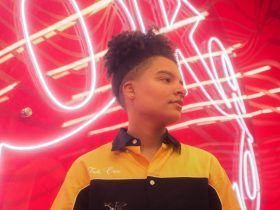


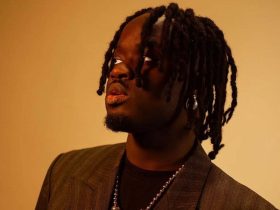





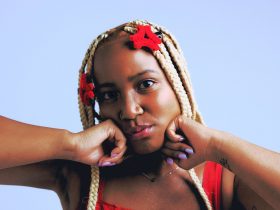

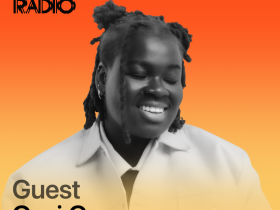









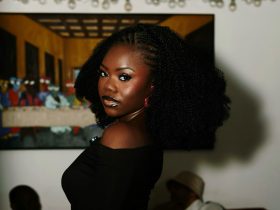



Leave a Reply